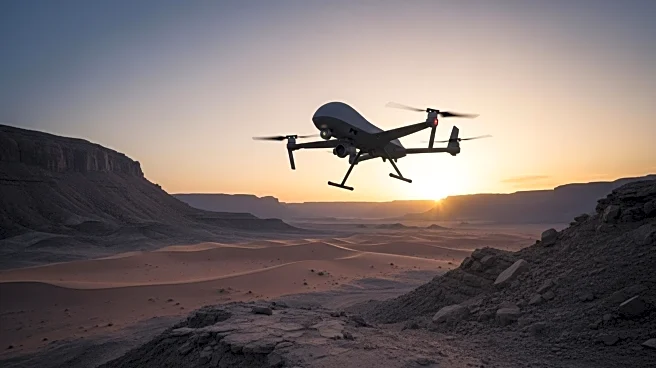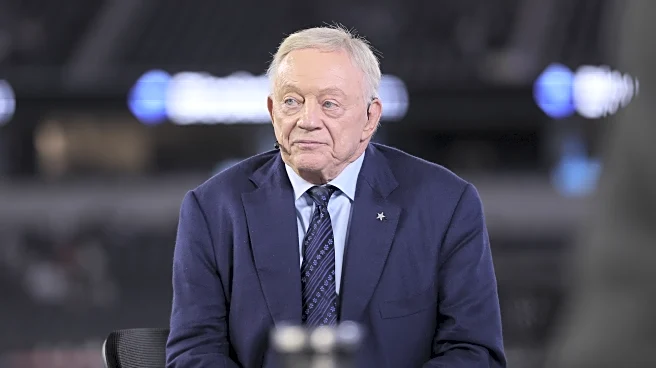What's Happening?
The Israeli Defense Forces conducted an airstrike on Thursday in Sanaa, Yemen, killing Houthi Prime Minister Ahmad al-Rahawi and several other ministers. This strike targeted a meeting of senior Houthi officials, marking a significant blow to the Houthi leadership. The Houthis, who control the Yemeni capital, have been involved in a prolonged conflict with Israel, launching missiles and attacking international shipping in the Red Sea. The Israeli government has justified the strike as a response to these aggressive actions, emphasizing their commitment to defending against threats.
Why It's Important?
This development is crucial as it represents a major escalation in the conflict between Israel and the Houthi rebels. The death of Ahmad al-Rahawi, a key figure in the Houthi government, could lead to a power vacuum and potential instability within the group. The strike highlights the ongoing tensions in the Middle East, with implications for regional security and international relations. The conflict has already affected global oil markets and shipping routes, and further escalation could exacerbate these issues. The international community may face increased pressure to intervene diplomatically to prevent further violence.
What's Next?
In the aftermath of the strike, the Houthis have vowed to continue their fight against Israel, potentially leading to further military engagements. Israel has indicated its readiness to respond to any threats, suggesting that the conflict may intensify. The international community may call for diplomatic efforts to de-escalate the situation and prevent further violence. Additionally, the internal dynamics within the Houthi movement may shift as they reorganize their leadership and strategy. Observers will be closely monitoring the situation to assess its impact on the broader geopolitical landscape in the Middle East.









